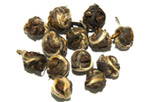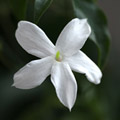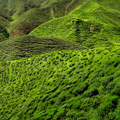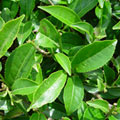Jasmine tea
„Jasmine tea (Chinese: 茉莉花茶; pinyin: mòlìhuā chá) is a type of scented tea which absorbs aroma from jasmine blossoms. Scented tea was known during the time of the Song Dynasty (960–1279); however it was reserved for the Imperial Court. Typically, jasmine tea employs green tea as the tea base; however, white tea and even black tea are also now used. The resulting flavor of jasmine tea is subtly sweet and highly fragrant. It is the most famous scented tea in China.“

Quotes Tags: Jasmine Tea
Theme
Tea by region
We will help you with tea selection.
Do you like quality loose tea?
We will help you to find the right one for you. Be inspired by tea ratings of other tea lovers. Rating stars could help you.


Review your cup of tea.
Review the tea you are drinking and help other tea lovers to find the right cup of tea.



Teas
YiWu 2012 autumn
 1 review
1 reviewpressed by stone mold into 250 grams cakes, autumn maocha Massive sweetishness in the back of...
2012 Chawangpu Jingmai Gu Shu Xiao Bing Cha
 1 review
1 reviewThis tea is from Jingmai Da Zhai, grown on the Da Ping Zhang area, and is considered some of the finest...
Big Green Tree Yiwu 2004
 1 review
1 reviewBig Green Tree Yiwu (special grade) year 2004 is a very nice aged pu-erh still for a reasonable price. The...
Quotes
„tong; 筒 - Literally a barrel or barrel shaped object. A tong in Yunnan tea culture is a bundle of 7 tea cakes wrapped in the outer skin of bamboo which naturally sheds from around the base of the bamboo stem. Each cake weighs 357grams so making a total of 2,499 gm. Said by some to have been calculated in order to remain under a specific legislated weight of 2.5 kg. There were originally said to be 8 cakes in a tong. The 8th being paid as a levy. An earlier unit of weight in China was the liang. A cake of tea weighed 7 liang and 7 cakes in a tong made 49 liang. “



 Shops
Shops Share on Facebook
Share on Facebook












